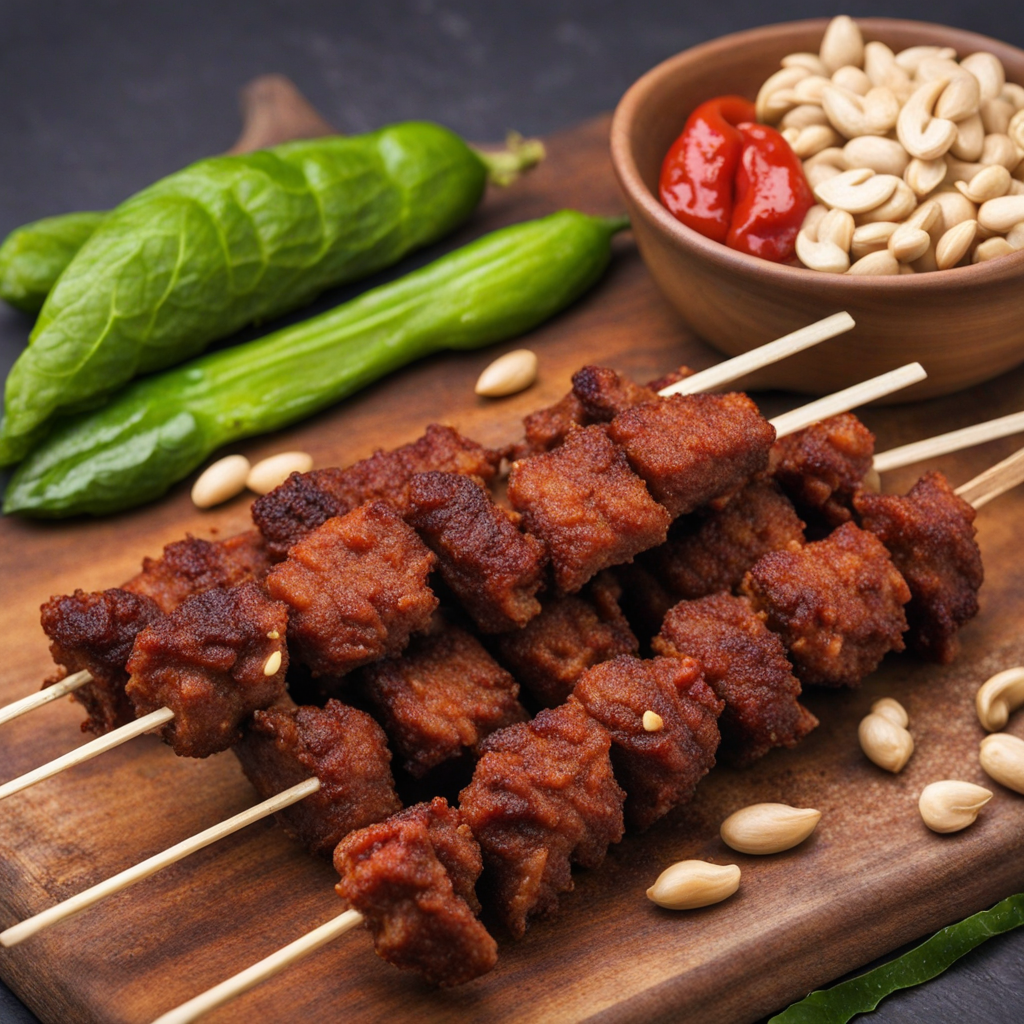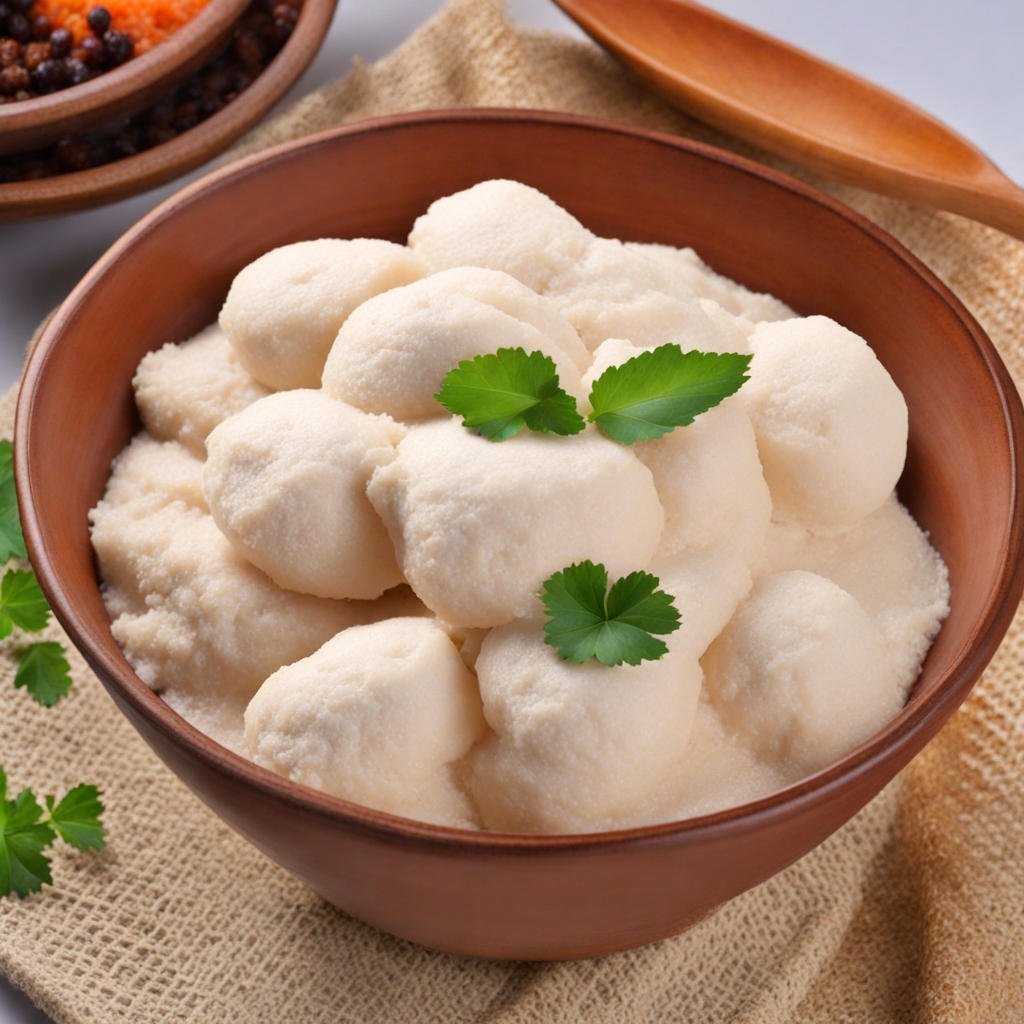Suya
Suya is a popular street food in Nigeria, known for its tantalizing combination of spicy and smoky flavors. This dish typically consists of skewered and grilled meat, usually beef, chicken, or goat, marinated in a rich blend of spices including ground peanuts, chili pepper, ginger, and garlic. The marinade, often called "yaji," gives the meat a distinct flavor profile that is both savory and slightly nutty, making each bite an explosion of taste. The grilling process adds a smoky depth, caramelizing the edges and creating a delightful char that enhances the overall experience.
How It Became This Dish
The History of Suya: A Culinary Treasure of Nigeria #### Origins Suya, a beloved street food in Nigeria, is more than just grilled meat; it is a cultural phenomenon that encapsulates the rich history and diversity of the Nigerian people. The name “suya” is derived from the Hausa word for skewered meat, and its origins can be traced back to the northern regions of Nigeria, where the Hausa people predominantly reside. The Hausa are known for their expertise in trade and agriculture, and their culinary practices reflect a blend of indigenous traditions and influences from neighboring cultures. The preparation of suya involves marinating thinly sliced beef, chicken, or goat meat in a mixture of spicy seasonings, including ground peanuts, chili peppers, ginger, and garlic, before skewering and grilling it over open flames. This method of cooking not only enhances the flavors but also reflects the traditional techniques of preserving and preparing meat in a region where pastoralism and trade have been central to the economy. Historically, the cultivation of spices and the use of fire for cooking are ancient practices in West Africa. The introduction of chili peppers to the African continent by Portuguese traders in the 16th century significantly influenced the culinary landscape, and suya is a prime example of how indigenous ingredients and foreign spices can harmonize to create something uniquely special. #### Cultural Significance Suya is more than just food; it is a social experience. Often sold by street vendors in bustling markets or by the roadside, suya brings people together. The aroma of the grilling meat wafts through the air, drawing crowds and invoking a sense of community. It is common to see groups of friends or families gathering around a suya stand, sharing stories and laughter over plates of spicy meat served with sliced onions and tomatoes. Suya is particularly popular during special occasions and celebrations, such as weddings, festivals, and public gatherings. It is often served at parties, where it is not only a dish but a symbol of hospitality and generosity. The act of sharing suya among guests signifies camaraderie and goodwill, making it an essential part of Nigerian communal dining culture. In the context of Nigerian cuisine, suya also holds a special place in the hearts of the people. It represents the country's diverse culinary heritage, as each region has its own unique take on the dish. While northern Nigeria is known for its beef suya, other regions have adapted the concept to include chicken, fish, or even vegetarian options. This adaptability is reflective of Nigeria's multicultural society, where various ethnic groups contribute to a rich tapestry of flavors. #### Development Over Time As Nigeria has evolved, so too has the art of making suya. In the mid-20th century, with urbanization and increased mobility, suya began to gain popularity beyond its northern roots. The dish found its way into the hearts and stomachs of people across the country, particularly in urban centers like Lagos, Abuja, and Port Harcourt. The growing popularity of suya led to the establishment of dedicated suya spots and mobile vendors, making it accessible to a broader audience. The globalization of food culture has also played a role in the evolution of suya. As Nigerians migrated abroad, they brought their culinary traditions with them, introducing suya to international palates. Food festivals, restaurants, and pop-up eateries featuring suya have emerged in cities around the world, from London to New York, showcasing the dish's versatility and appeal. This dissemination has sparked interest in its preparation and has inspired chefs to experiment with flavors and presentation, infusing suya with modern twists while remaining true to its roots. In recent years, the rise of food bloggers and social media has further catapulted suya into the spotlight. With visually appealing photos and videos of suya being prepared and enjoyed, it has gained traction among food enthusiasts and curious eaters alike. This digital presence has not only elevated its status but has also led to a resurgence of interest in traditional Nigerian cuisine as a whole, with suya often serving as the gateway dish for those looking to explore the broader spectrum of Nigerian flavors. #### Conclusion Suya is a dish that embodies the spirit of Nigeria—its history, culture, and people. From its humble beginnings as a street food in northern Nigeria to its status as a culinary ambassador on the global stage, suya tells a story of resilience, adaptability, and community. It reflects the rich tapestry of Nigerian society, where diverse ethnic groups come together to celebrate their shared love for food. As we continue to witness the globalization of culinary traditions, suya stands as a reminder of the importance of preserving cultural heritage while embracing innovation. Whether enjoyed at a bustling suya stand in Nigeria or a trendy restaurant abroad, the experience of savoring this spicy, grilled delight is one that transcends borders and connects us all through the universal language of food.
You may like
Discover local flavors from Nigeria







